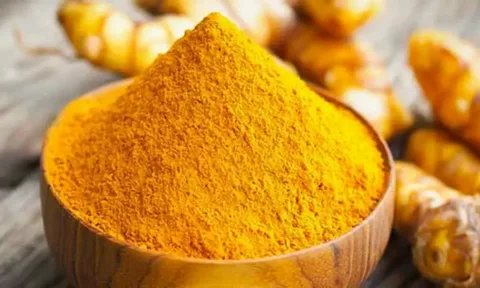Introduction
Turmeric, also known as Curcuma longa, is a bright yellow spice commonly used in Asian cuisine. However, turmeric’s benefits extend far beyond its culinary uses. The active compound in turmeric, curcumin, has gained significant attention in recent years due to its potential health-promoting properties. While incorporating turmeric into your diet can provide some benefits, many individuals choose to supplement their intake with turmeric capsules or extracts. In this comprehensive guide, we will explore the various benefits of turmeric supplements, supported by scientific research and anecdotal evidence.
Powerful Anti-Inflammatory Effects
Curcumin, the primary bioactive compound in turmeric, possesses potent anti-inflammatory properties. Chronic inflammation is linked to numerous health conditions, including heart disease, diabetes, and certain cancers. Turmeric supplements can help reduce inflammation by inhibiting the activity of inflammatory molecules in the body. Several studies have shown that curcumin supplementation can effectively alleviate symptoms of inflammation-related conditions, making turmeric supplements a valuable addition to an anti-inflammatory regimen.
Enhanced Antioxidant Activity
Oxidative stress, caused by an imbalance between free radicals and antioxidants in the body, can lead to cellular damage and contribute to the development of chronic diseases. Turmeric supplements have been found to boost the body’s antioxidant defenses, primarily through the action of curcumin. Curcumin helps neutralize free radicals, reduces oxidative stress, and supports the body’s natural antioxidant pathways. By including turmeric supplements in your routine, you can potentially protect against oxidative damage and promote overall well-being.
Joint Health and Pain Relief
One of the most well-known benefits of turmeric supplements is their potential to support joint health and alleviate pain associated with conditions like arthritis. Curcumin has been shown to have anti-arthritic effects by reducing joint inflammation and preventing the breakdown of cartilage. Regular supplementation with turmeric can provide relief from joint pain and improve overall joint function, allowing individuals to maintain an active lifestyle.
Digestive Health and Gut Wellness
Turmeric supplements can positively impact digestive health by aiding in the proper digestion of food and supporting gut integrity. Curcumin stimulates the gallbladder to produce bile, necessary for the breakdown and absorption of dietary fats. This action may help alleviate symptoms of indigestion, bloating, and gas. Additionally, curcumin has been found to exhibit antimicrobial properties, helping to maintain a healthy balance of gut bacteria and reducing the risk of digestive disorders.
Brain Health and Cognitive Function
Curcumin’s potential neuroprotective properties make turmeric supplements a promising tool for supporting brain health and cognitive function. Studies have shown that curcumin can cross the blood-brain barrier and accumulate in brain regions associated with memory and learning. Curcumin’s antioxidant and anti-inflammatory effects contribute to reducing oxidative stress and inflammation in the brain, which may play a role in the prevention or management of neurodegenerative conditions like Alzheimer’s disease.
Cardiovascular Support
Maintaining a healthy cardiovascular system is crucial for overall well-being. Turmeric supplements may help promote heart health by several mechanisms. Curcumin has been found to improve endothelial function, which is essential for healthy blood flow and blood pressure regulation. It also possesses lipid-lowering properties, reducing levels of “bad” LDL cholesterol and triglycerides. Additionally, curcumin’s anti-inflammatory effects can help reduce the risk of cardiovascular diseases and their complications.
Potential Anti-Cancer Effects
While more research is needed, preliminary studies suggest that turmeric supplements may exhibit anti-cancer properties. Curcumin has been shown to inhibit the growth and spread of cancer cells in test-tube and animal studies. It may also enhance the effectiveness of certain chemotherapy drugs and reduce their side effects. However, it is important to note that turmeric supplements should not replace conventional cancer treatments, but rather be considered as a potential complementary approach.
Skin Health and Anti-Aging Benefits
Turmeric supplements can contribute to maintaining healthy and youthful-looking skin. Curcumin’s antioxidant and anti-inflammatory properties can help combat skin aging by neutralizing free radicals and reducing inflammation associated with skin conditions like acne, psoriasis, and eczema. Some individuals also report improvements in skin tone, texture, and overall radiance with regular turmeric supplementation.
Conclusion
Turmeric supplements, thanks to the active compound curcumin, offer a wide range of potential health benefits. From reducing inflammation and supporting joint health to promoting brain function and cardiovascular well-being, the advantages of incorporating turmeric supplements into your daily routine are compelling. However, it is important to consult with a healthcare professional before starting any new supplementation regimen, especially if you have existing medical conditions or are taking medications. Embracing the power of turmeric supplements can be a valuable step toward optimizing your health and well-being.
- The Ultimate Guide to the Best Delta-10 THC Tinctures Reviews and Recommendations - October 24, 2023
- The Comprehensive Guide to the Benefits of Turmeric Supplements - July 11, 2023

